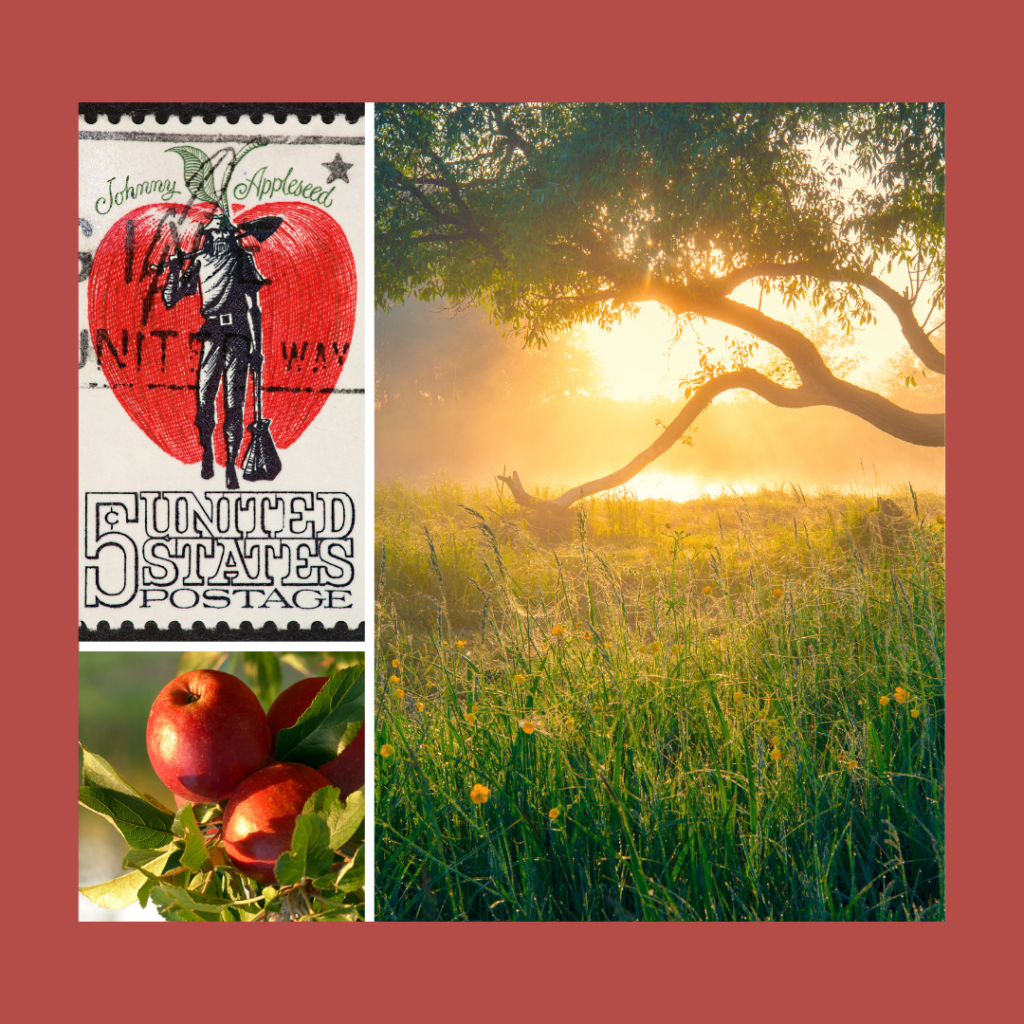
During the month of September, I like to celebrate the birthday of a man who, centuries ago, carried his Bible and a sack of apple seeds across parts of the unsettled northeast and shared them there. That man’s name was John Chapman, but because he planted apple trees everywhere that he traveled, folks called him Johnny Appleseed. Supposedly, when Johnny visited each farm on his route, he ripped pages from his Bible and left them with various families, and when he returned, he picked up the pages that he had left and replaced them with others. For that reason, Johnny Appleseed is said to have been America’s first librarian, but I reiterate the word “supposedly.” Much of what is said about Johnny Appleseed is a great American myth, and yet, I like myths. I believe that our myths tell us much about who we are and from where we have evolved.
Johnny Appleseed’s birthday was September 28, 1774, and he was an example of the tradition of traveling circuit or itinerant preachers. There are still a few itinerant preachers around, but about 100 years ago, many of them dotted the map of the USA. My great-great-grandfather was a circuit preacher in Southeast Missouri, and in addition to preaching, he owned a large farm. Among other crops, he grew apples on that farm. This farmer-preacher’s name was Reverend Milton J. Whitaker. Before he became a preacher, he served in the Confederate army.
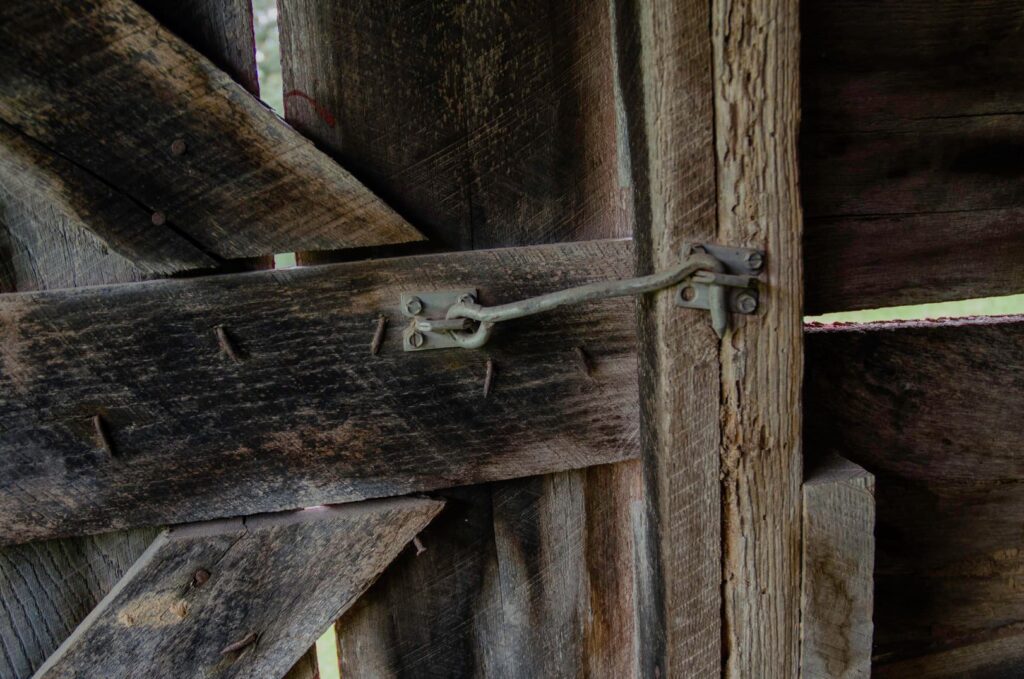
The Whitaker home was a large dog-trot house built from rough-hewn boards.
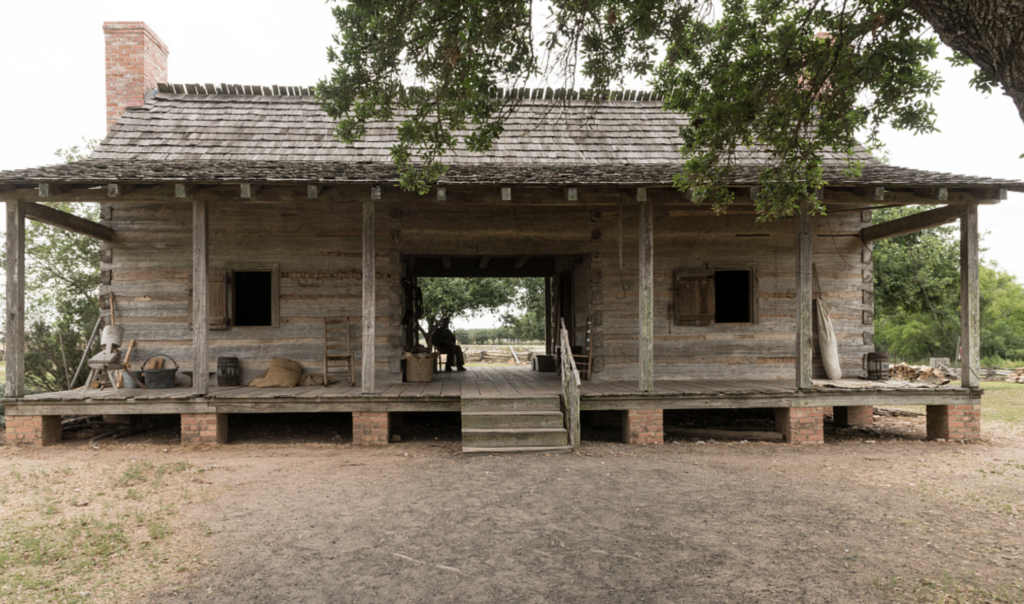
A huge fireplace dominated one wall of the house, and the family cooked soup and beans in a cast iron pot that hung from a hook above the logs in that fireplace.
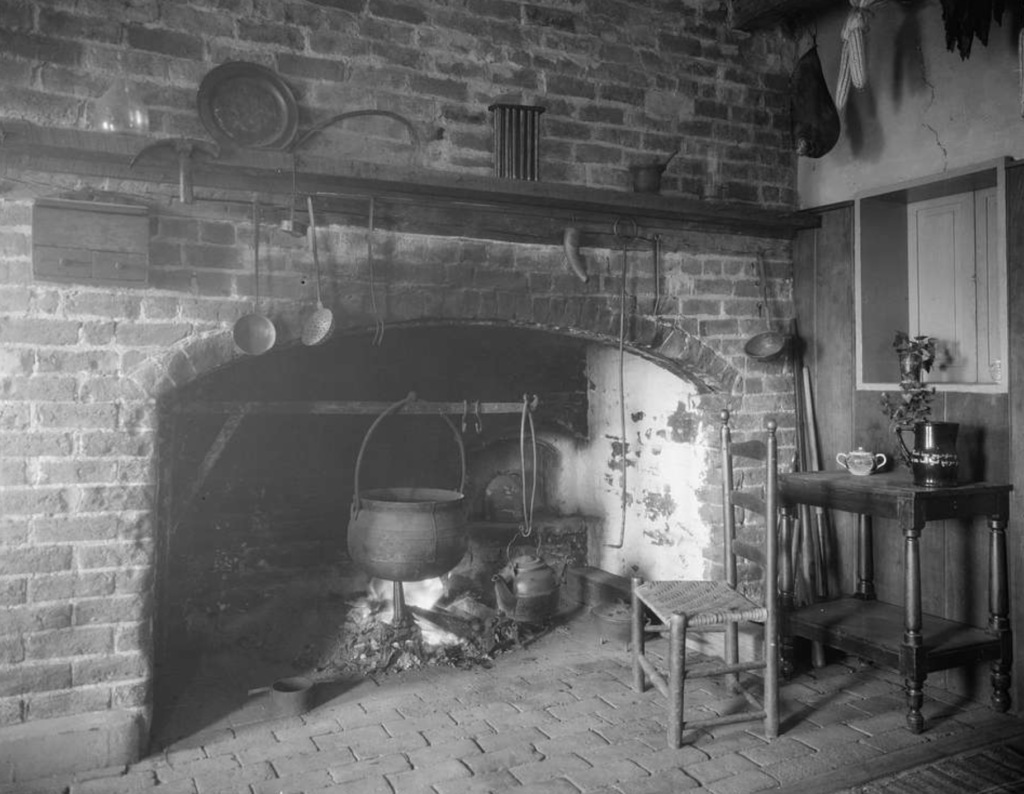 They also baked home-grown potatoes in the coals in front of the flames. A pot-belly stove served as another source of heat in the Whitaker home, and a wood-burning cook stove stood in the house’s large kitchen. My ancestors and their friends often congregated in that warm country kitchen. In fact, my mother remembers congregating in that kitchen. At one time, big kitchens were used in the same way that we use dens today.
They also baked home-grown potatoes in the coals in front of the flames. A pot-belly stove served as another source of heat in the Whitaker home, and a wood-burning cook stove stood in the house’s large kitchen. My ancestors and their friends often congregated in that warm country kitchen. In fact, my mother remembers congregating in that kitchen. At one time, big kitchens were used in the same way that we use dens today.
The Whitaker’s dog-trot house was just down a dirt road from the rural Oak Grove Baptist Church, which was, even at that time, a church in the wildwood. During his latter years, Reverend Whitaker settled to preach there. Until recently, my ancestors owned all the land in that area, and the path from the Whitaker’s home toward that church was lined with pecan and black walnut trees. Often, church members walked along that shady path to my family’s dogtrot house, where they would share dinners on the ground. I love knowing that. To this day, I always look for places at old church sites where members have assembled to enjoy meals together outside.
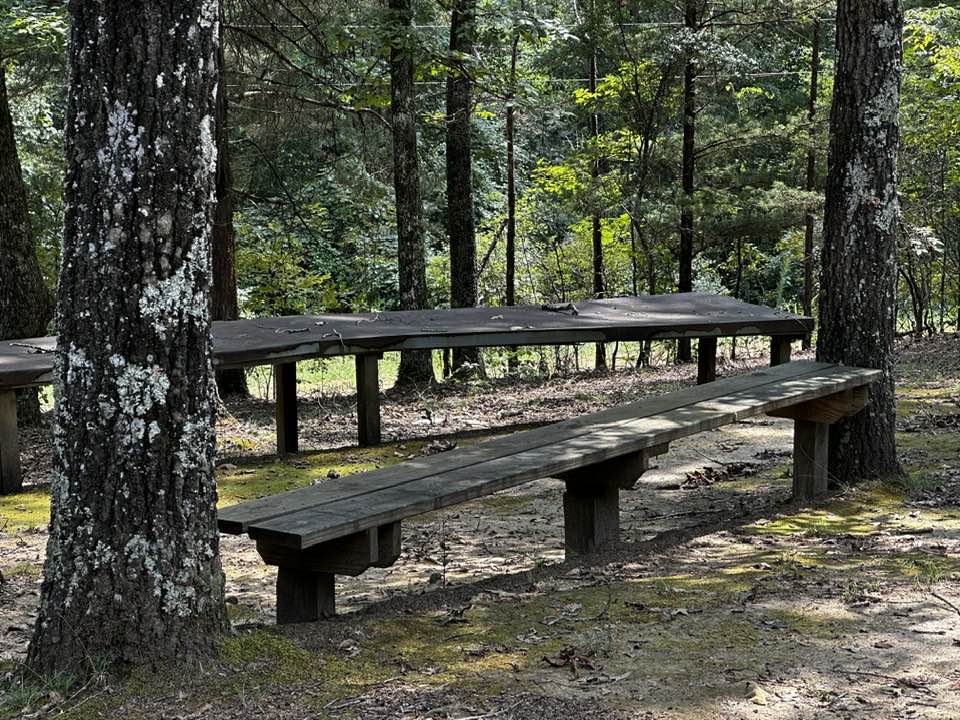
The old country churches had no massive fellowship halls, and in order to find a large enough space for everyone to gather for a meal together, boards were nailed to trees, and those boards became buffets. Like many Baptists, I love church buffets. I like it when church members enjoy each other’s company enough that they want to spend some of their free time together. Because I also love nature, I am especially interested in stories about church members who have picnicked together or who have eaten dinners on the ground. To be honest, I simply love the ground, or the earth. I simply love nature.

A couple of days ago, some friends took me to a state park set on Enid Lake, which is just outside of Water Valley, MS. The first time I visited that park, I stood on a point that overlooked the water. which was glassy still that day. That sight reminded me of the many times that I, as a child, had sat with my friends at camp and had sung to the water just beyond a patch of ground:
“Peace, I ask of thee O, River.
Peace, Peace, Peace.”
Perhaps I remembered then, as I do now, that the Lord, my Shepherd, has prepared for me a place to rest by still waters. For whatever reason, I long to be embraced by the calm sweetness of nature. Something about it fills my spirit. At camp, we sang various prayer songs before we ate our meals. One of my favorite camp blessings was The Johnny Appleseed Prayer:
“Oh, the Lord is good to me, and so I thank the Lord,
For giving me the things I need:
The sun, the rain, and the apple seed,
The Lord is good to me.”
At camp, I learned to love much about the outdoors. Even as young children, the kids at my camp slept in cabins with screened walls, and it seemed as though we were sleeping in the very arms of nature. In those cabins, we had no electricity, no bathrooms, and not much to keep the elements away. Often at the end of a camp day, we would sing:
“Bed is too small for my tiredness,
Give me a hill topped with trees.
Tuck a cloud up under my chin.
Lord, blow the moon out, please.
On cooler nights, the evening’s vapors filtered through the cabin’s screen and swallowed me. I loved the coolness and the dampness of the night air at camp. When it was very late, I would lie on my bed and listen to the small animals who were picking through the leaves outside. It always seemed that the whippoorwills and the owls perched right above my pillow, and they sang to me all night long. As I lay awake at night, I cherished the sounds of nature. I especially loved it when it rained on those nights.
Rain is moody and provocative. At my camp, the cabins had galvanized metal roofs. I loved listening to the rain, as it filtered through the trees and tapped the tin roof. After the water hit the metal, it slid downward, one drop at a time. The softer rains would ultimately pierce through the crust of the leaves that had fallen, and they would rustle and crackle. The rain settled the dust, and the aroma of the dampened earth saturated the air. When it stormed, the trees became tribal-like, as they waved their arms, shook their heads, and swayed wildly. Like savages in preparation for a hunt, the tempest-tossed trees danced around a ring and hurled spears into the air. Tree limbs would occasionally scrape across the metal roof. Screeching and groaning, the limbs would slowly etch their paths overhead. In a similar way, nature has left its mark on me.
When it rained hard at camp, the water would often pound the tin roof, and the belting of the droplets would crescendo into a roar. Torrents of rain would form at the edges of the galvanized metal, and like water being sloshed from a tub, it flooded the ground and formed small rivers that pushed piles of leaves and branches to somewhere else downstream. Like Mother Nature’s bathtub, rain is how the world is washed clean, and when I am in the rain, I feel that I am also being cleansed. But while I do love the rain, I know that Jesus, who has prepared a spot for me by still waters, has also shed his blood which washes me in greater ways than the rain can ever cleanse me. Nature is my constant reminder of God’s power and grace. I find peace in that: “The peace that passeth all understanding.” Philippians 4:7
This week, as I thank God for the sun, the rain, and the apple seeds, I also thank Him for His peace, “like a river,” that carries me through life. Nature reminds me: “It is well with my soul.”
Discover more from Jacki Kellum
Subscribe to get the latest posts sent to your email.